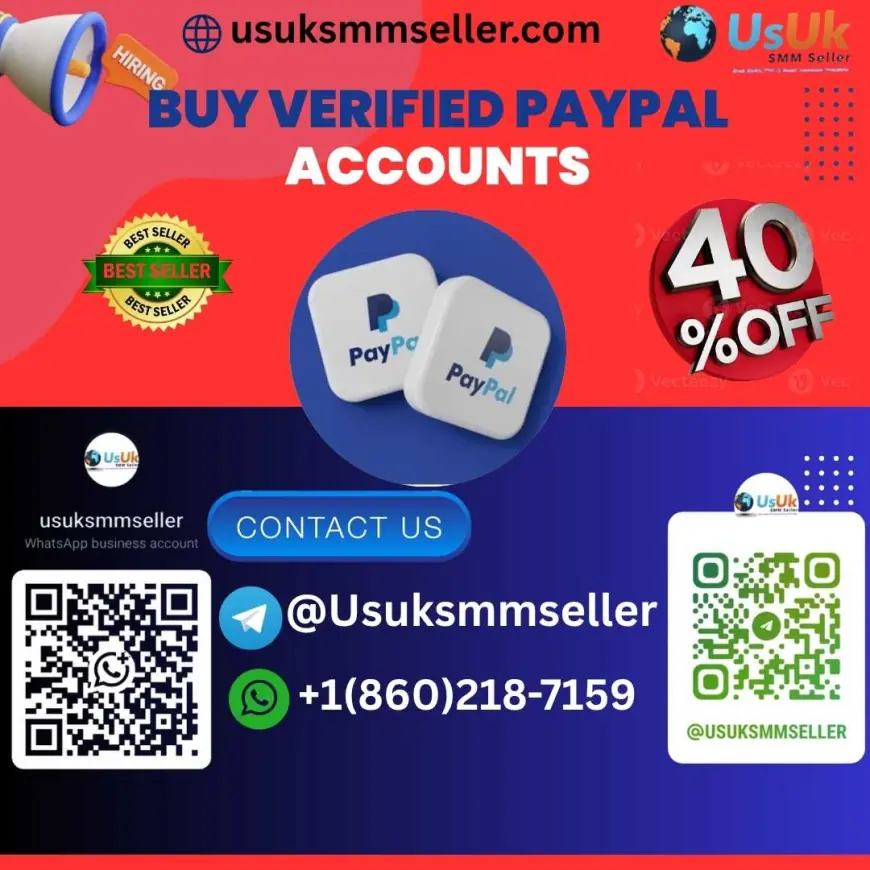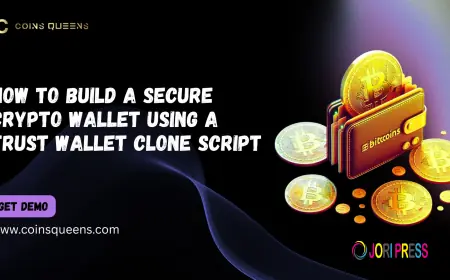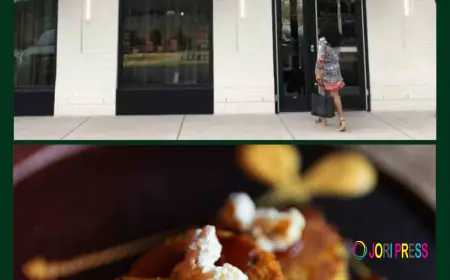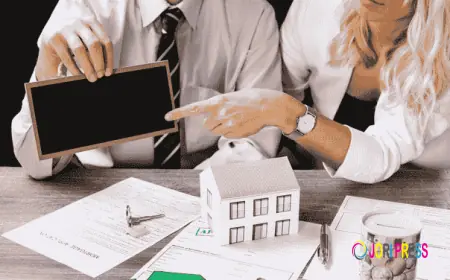Tips for Keeping Your PayPal Accounts Secure
In today’s digital world, online transactions have become an essential part of daily life. PayPal is one of the most trusted platforms for sending and receiving money, shopping online, and even running businesses
Tips for Keeping Your PayPal Accounts Secure
If you want to know more or have any queries–
24/7 Ready for Customer Support.
➤Email: [email protected]
➤Microsoft Teams: UsUkSMMSeller
➤Telegram: @Usuksmmseller
➤WhatsApp: +1 860 218-7159

In today’s digital world, online transactions have become an essential part of daily life. PayPal is one of the most trusted platforms for sending and receiving money, shopping online, and even running businesses. With over 400 million users worldwide, it’s no surprise that cybercriminals also target PayPal accounts. Keeping your account secure is not just about protecting your money—it’s also about safeguarding your personal information. Below are some practical tips to help you enhance the security of your PayPal account and reduce the risk of fraud.
Create a Strong and Unique Password
Your password is the first line of defense against unauthorized access. Avoid using simple or predictable passwords like your name, date of birth, or “123456.” Instead, create a strong password that includes:
-
A mix of uppercase and lowercase letters
-
Numbers
-
Special characters (like @, #, or $)
-
At least 12 characters in length
It’s also important to use a unique password for PayPal that you don’t reuse on other accounts. That way, even if another service you use is hacked, your PayPal credentials remain safe. Consider using a password manager to generate and securely store strong passwords.
Enable Two-Factor Authentication (2FA)
Two-factor authentication adds an extra layer of protection to your account. With 2FA enabled, even if someone gets hold of your password, they won’t be able to access your account without a second verification step—usually a code sent to your mobile device or generated by an authentication app.
PayPal supports 2FA, and enabling it is one of the simplest and most effective ways to secure your account.
Beware of Phishing Scams
Phishing emails are one of the most common ways scammers try to steal PayPal login details. These emails often look like they’re from PayPal and may ask you to click on a link, verify your account, or update your payment details.
To stay safe:
-
Never click suspicious links or download attachments from unknown emails.
-
Always check the sender’s email address—it may look official at first glance but could contain slight misspellings.
-
Log in to PayPal only through the official website or the official PayPal app, not through links in emails or texts.
Monitor Your Account Regularly
Keeping an eye on your account activity helps you spot unauthorized transactions quickly. Make it a habit to check your account regularly, even if you don’t use PayPal every day.
PayPal also allows you to set up notifications. Enabling email or SMS alerts for transactions ensures you are immediately informed of any unusual activity.
Use Secure Devices and Networks
Avoid logging into your PayPal account from public computers or unsecured Wi-Fi networks, as these can be breeding grounds for hackers and malware. If you must use a public connection, consider using a Virtual Private Network (VPN) to encrypt your data.
On your personal devices, always keep your operating system, browsers, and security software updated. Cybercriminals often exploit outdated systems to gain access to sensitive information.
Be Cautious with Linked Accounts and Cards
PayPal is often linked to your bank account, debit card, or credit card. Make sure that these accounts are also secured with strong passwords and fraud alerts. If possible, use a credit card rather than a debit card when linking to PayPal, since credit cards typically offer stronger fraud protection.
Recognize Fake Websites and Apps
Cybercriminals sometimes create fake websites or apps that mimic PayPal to trick users into entering login information. Always double-check the web address before entering your details. The official PayPal site will always begin with
If you download the PayPal app, do so only from the official Apple App Store or Google Play Store.
Don’t Share Your Login Information
It may seem obvious, but never share your PayPal username or password with anyone—not even friends or family. Scammers sometimes pose as acquaintances or customer service representatives to trick people into giving away sensitive information. PayPal will never ask for your password through email, phone, or text messages.
Stay Updated on Security Practices
The world of cybersecurity is always changing. Hackers constantly come up with new tactics, and staying informed can help you protect yourself. PayPal provides security tips on its website, and it’s wise to stay updated with news about online fraud and scams.
If you want to know more or have any queries–
24/7 Ready for Customer Support.
➤Email: [email protected]
➤Microsoft Teams: UsUkSMMSeller
➤Telegram: @Usuksmmseller
➤WhatsApp: +1 860 218-7159
Report Suspicious Activity Immediately
If you suspect that your account has been compromised or notice a suspicious transaction, report it immediately to PayPal. You can open a dispute through the Resolution Center or contact customer support. Acting quickly can help limit potential damage and increase your chances of recovering lost funds.
Final Thoughts
Your PayPal account is not only a financial tool but also a gateway to sensitive personal information. By taking proactive steps—such as creating strong passwords, enabling two-factor authentication, being alert to phishing scams, and monitoring your account—you can greatly reduce your risk of falling victim to fraud. Remember, online security is an ongoing process. Staying vigilant and practicing safe habits will help keep your PayPal account secure for years to come.
What's Your Reaction?
 Like
0
Like
0
 Dislike
0
Dislike
0
 Love
0
Love
0
 Funny
0
Funny
0
 Angry
0
Angry
0
 Sad
0
Sad
0
 Wow
0
Wow
0













































